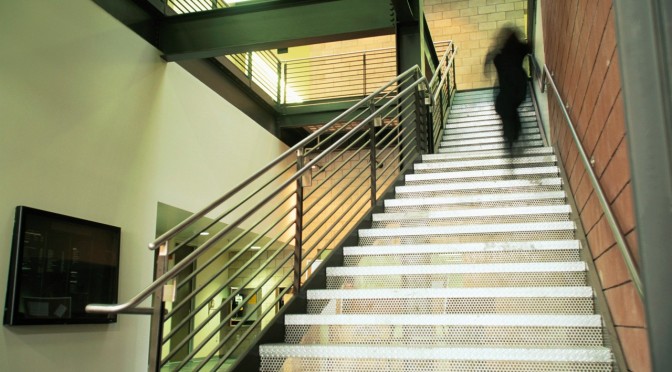 Another broken or stolen laptop? Are you sure about that?
Another broken or stolen laptop? Are you sure about that?
Are you going to be that one who calls home begging for another computer because your laptop was stolen or it dropped out of your backpack. Mom may lose patience with that one after having forked over $2k for the MacBook Air. Besides, do you really need it?
Let’s think this through carefully. What do you really need?
Here’s my assessment of the advantages and disadvantages of your computer options (on Scale of 5):
|
Desktop PC |
Laptop PC |
Tablet |
Mac desktop |
Mac laptop |
| Ease of Use |
5 |
4 |
2 |
5 |
4 |
| Portability |
1 |
4 |
5 |
1 |
4 |
| Reliability |
5 |
4 |
4 |
5 |
4 |
| Capacity / Function |
5 |
4 |
2 |
5 |
4 |
| Cost |
5 |
4 |
4 |
1 |
1 |
| Risk of Loss or Breakage |
5 |
2 |
2 |
5 |
2 |
Overall Score
(total ÷ 6 categories) |
4.3 |
3.6 |
3.1 |
3.6 |
3.1 |
Here for updates on this topic:
The Best Computers for College: desktop, laptop or tablet? PC or Mac? pt 2
Laptop, Tablet, or Desktop? Google Docs or Office 365? Which technology is best for high school and college?
Desktops are old fashioned, you say?
Desktops have become, like cars, an afterthought: the average age of American cars is eleven years now, the highest it has ever been. That’s because they’re built better than ever and have all the functions consumers need. What hurt GM, Ford and Chrysler as much as anything over the last five years is that they’re products are very, very good, so people don’t need to buy new ones as often as before. A 2003 automobile is as good as a 2011, and there’s not much a 2013 offers that the ’03 can’t — other than the built-in Bluetooth or a few overly redundant safety features.
And these cars are lasting a long time now. Same goes with PCs: Microsoft’s biggest problem with Windows is that the Windows 7 program is very, very good, very very stable, and there’s little reason to upgrade it anymore (they tried for years to dump XP, which is still solid, useful and widely used). So desktop PCs aren’t so much old fashioned as they are, like a good car, just there.
Now, if you want a Mac, go for it. But you’re gonna pay for it, be it a desktop or a laptop. A Windows 7 PC will cost you less than your smartphone, and you will have a hard time breaking the screen or leaving it on your seat at the movies.
A Windows 7 laptop costs about the same as a desktop and has the added benefit of portability. But do you really, really need to carry your computer around? Some teachers will allow it in class, although I hear more and more about professors who ban them from classrooms because kids are on Facebook rather than focused on class. If I were in college, I’d have a laptop. The ability to take it with me is just that important. BUT… I’d probably break it or lose it inside of the first semester.
Above all else is cost, which is why 82% of college students use a PC, i.e., Windows-based desktop or laptop. (I’m guessing that most of those are laptops.) As the expert is quoted in that article:
Another reason PCs are winning out with students: price. Desktop PCs are at their cheapest during September when students are going back to school… with prices starting at $200 for a dual-core desktop PC. (The iPad Mini
costs $329.) “The desktop PC is simply a wiser, more realistic investment for any student this fall”
I strongly recommend a decent new or lightly used Windows 7 PC or laptop. As the article points out, a decent PC will start around $200, and there’s no need to go much higher than that, even with a full desktop setup with monitor, keyboard, mouse, and speakers.
Used Equipment
We work with our students to make sure their equipment is available, proper, and functional. I can get a good Win 7 desktop (with monitor etc.) or laptop from anywhere between $100-$200, depending on the capacity, and with a 1 year warranty. Not bad. So let me know if you’re interested.
My Own Equipment
I use four computers, three laptops and a desktop, all PCs, and all HPs. My laptops can serve as a desktop when I plug it into a wireless keyboard, mouse, speakers, and external monitor setup. One laptop is for upstairs, one is for taking with me, and the other is my old workhorse, a seven year old HP that still goes and goes. I bought my desktop because I wanted a better 2nd monitor and higher overall performance, storage, speed, and so on.
So you know, I run Windows 7 on the old laptop and Windows 8 on the others. I also have a Windows Phone that syncs beautifully with my 8 machines and all my Office Programs, especially OneNote (organization) and Outlook (email). I’ll probably buy a Surface tablet, but I’m waiting for built-in mobile broadband, which is coming later or next year. I can wait. That’s me.
What about you, and what about for college?
What about cell phones?
You can do all that on a smart phone. But not very well. And a little better on a tablet, but, again, not very well. A laptop does it all, with portability. But that, too, comes at a cost in functionality and risk of damage or loss. The best solution for that list is, I hate to say it – a desktop.
Next
I will next post my Computer Tool Kit list for you with essential programs, features and file management tools. Feel free to call or write with any questions.
Technology should not be a problem!
– Michael
 “I’m so bored.”
“I’m so bored.”










